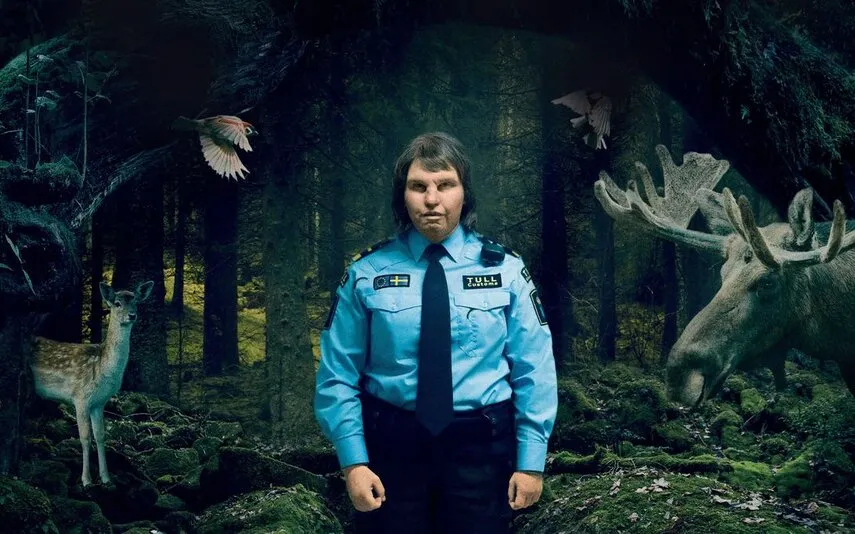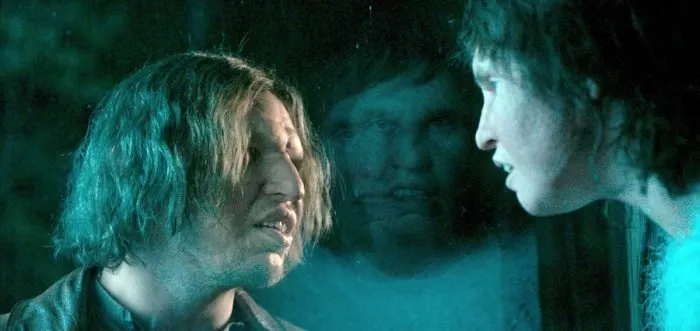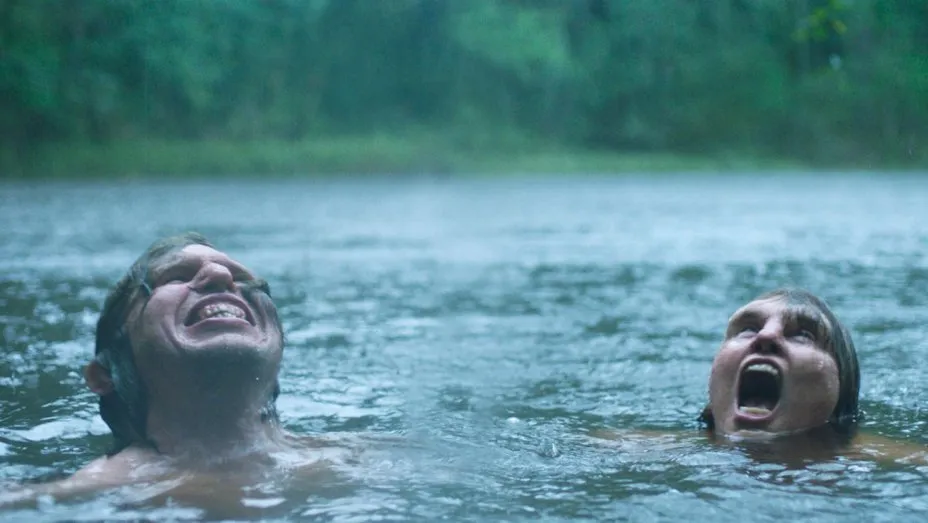Tina (Eva Melander) steps on the wet earth and the moss that perches on the roots of the trees. Pick up an insect with your hand and place it on a leaf, returning it to its habitat. He walks through the forest and breathes deeply, as if he did it after being locked up for a long time. She undresses and swims in a lagoon despite the cold and drizzle. It is one more element in nature and animals are approached organically, without any being surprised.
This is Tina in the solitude of the wild. As you approach civilization, everything changes. Your gestures, your posture and your comfort. He wears a uniform buttoned up to the neck, he hardly speaks and spends his stiff day in the customs hall.
A strange ability or gift allows Tina to stand out as an employee at the border crossing, since, just by sniffing at the distance to passing people, she can detect if they are carrying illegal substances, as well as other situations for which they could be stopped She not only smells alcohol or cocaine, but also shame or anger.
The rough and scary image of this woman is opposed to an extreme sensitivity that at first only translates through this hyperdeveloped sense, which, however, does not prevent her from getting hurt due to certain links with other people, whether familiar or others you have chosen in relative freedom.
The strange aspect of Tina places her in a place of vulnerability when it comes to relating. The feeling of being different is confirmed by the eyes of those who intersect with her ephemerally at work. Although she has managed to build friendships, her relationship as a couple and coexistence is not based on a classic affection but seems more like a pragmatic choice on the part of both, although she is the one who carries the effort to maintain the home. On the other hand, the relationship with his father (Sten Ljunggren) is of a complex nature, beyond the incipient senile dementia. Affection is present, but so is the lack of information necessary for her to know and feel complete.
Apparently, Tina only finds rest in that humid forest, where green, water and wildlife abound in its various forms, which reminds us of a fable or fairy tale. Tina makes it explicit after meeting Vore (Eero Milonoff), a being so strange and similar to her at the same time.
That meeting will be a turning point in his life and in the movie. If the story had begun as a kind of melodrama, here it will open to fantastic elements, without neglecting the police plot that had also been introduced in the first third of the story, thanks to Tina's hound.
Borders are the key part of the story. At times they operate to expose the limit between legal and illegal, but also to account for the fine line that separates the human from the non-human, the real from the unreal, the affective from the convenient, the ideal from the possible and The right of the desired.
The edge is as thin as a razor's edge and Tina travels it despite the wounds it generates. He dares, transfers it and returns. Around it, there will be those who drive within the area of what is comfortable or profitable, while others will remain in the “disturbed” zone, that provocative zone that causes discomfort on the other side.
Tina is on the edge, on the border and transfers it only at her expense.
Director Ali Abbasi takes us on this tour that starts from the drama to go to the thriller and the fantastic, without leaving any of the genres halfway, in a masterly way, almost without realizing it.
The plot also plays with the interior and exterior. Inside Tina is oppressed and outside she is released. Its exterior is hard and generates rejection among the common people; while inside it has a warmth that only those who are closer to nature can feel it. She is silent on the outside but keeps a gasp inside her.
The counterpoints in Border are constant but, at the level of the characters, there is nothing dichotomous. Each character is involved in the various worlds that surround them, with all their contradictions. Some dive into them, while others elude them but there they are, to put us in check, to bother and force us to take action. Just like Tina's face ... we can go sideways, looking at her out of the corner of her eye, feeling her "monstrous" presence but without facing her, we can fix the gaze in a hypnotizing way or we can avoid it, changing the course of our walk. One way or another, we will be opting and acting.
Something similar happens with Tina in the face of the monstrosity of this world and of all the worlds that apparently coexist on the planet. The genius of the film is to accompany this strange protagonist in the search for his best option against what is presented to him.



